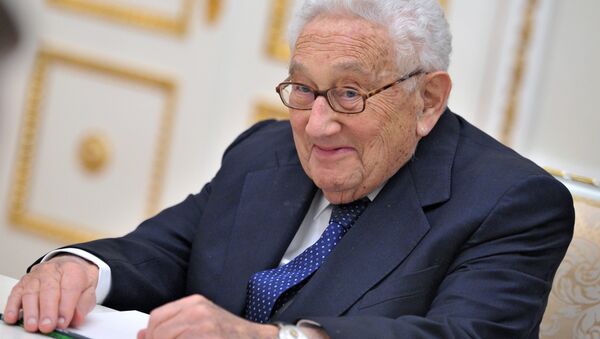In a recent statement, Kissinger called the Brexit decision "a classic illustration of the law of unintended consequences." Acknowledging the high emotions surrounding the vote, he spoke of its international importance.
"The impact of the British vote is so profound because the emotions it reflects are not confined to Britain or even Europe," he said. "The popular reaction to European Union institutions (as reflected in public-opinion polls) is comparable in most major countries, especially France and Spain."
He argues that the vote reflects opinion in Britain and that frustration over the exit shouldn’t cloud critical analysis of its implications.
"However challenging this expression of popular sentiment, ignoring the concerns it manifests is a path to greater disillusionment."
He noted that there was fierce debate in Britain across the political spectrum, and said the exit was somewhat unforeseen, even by some of its supporters.
"Many backers of the Leave campaign were surprised by their success, having understood their political mission initially in much less sweeping terms," he said.
"All these elements have been overwhelmed because the European vision elaborated over decades has been developing a sclerotic character. Internal debates of Europe have increasingly concentrated on structural contradictions. In the process, the vision that motivates sacrifice is weakening."
He explained that the historic vote demonstrates how the concerns of Europe have grown increasingly myopic in the years since the Marshall Plan.
"It was, on one level, a rejection of the worst consequences of European divisions, especially the traumatic wars that had killed tens of millions of Europeans in the 20th century alone. But it was also an affirmation of the values by which Europe had become great," he said.
"Too much of the Europe of today is absorbed in management of structural problems rather than the elaboration of its purposes. From globalization to migration, the willingness to sacrifice is weakening. But a better future cannot be reached without some sacrifice of the present. A society reluctant to accept this variety stagnates and, over the decades, consumes its substance."
Kissinger remains optimistic about the future. Advising Europe to maintain good relations with Britain, he ultimately thinks there’s potential for Britain to return to the EU in the future.
"Many of us who have grown up with and admired the vision of European unity hope that the EU will transcend itself, by seeking its vocation not in penalizing the recalcitrant but by negotiating in a manner that restores the prospects of unity."
"The EU should not treat Britain as an escapee from prison but as a potential compatriot."





